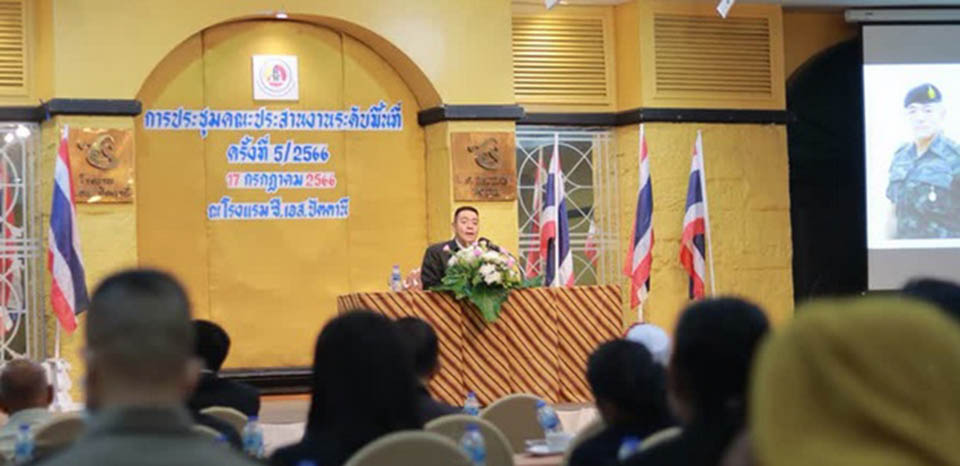
Representatives of eight societal organizations from the three Southern Border Provinces and four districts of Songkhla recently gathered to discuss updates on peace talks, recommendations and progress in the Southern Border Provinces. They were joined by officials from the 4th Region Army, the Internal Security Operations Command (ISOC) Region 4, and the 5th Infantry Division,
Gen Wallop Raksanoh, head of the government’s negotiation team in the Deep South, highlighted that despite the current government transition period, there have been no major concerns about the peace process in the Southern Border Provinces.
The government has established clear policies at every level to address ongoing issues in these provinces, now classified as national-level policies. These policies ensure the collaboration and cooperation of all relevant state agencies and units. Regardless of the government in power, the involvement of all local stakeholders is being encouraged to ensure sustainable social and cultural development.
The Joint Civilian, Police, and Military Plan (JCPP), an initiative to promote comprehensive peace, continues to be upheld. The goal is to achieve permanent peace by resolving conflicts in the region, with the Barisan Revolusi Nasional (BRN) continuing to be a key partner in the peace negotiations. However, should any changes occur, the government reaffirms its commitment to involve all relevant parties, citizens, and organizations alike in creating a conducive environment for sustainable peace in the Southern Border Provinces.
Meanwhile, Lt Gen Santi Sakuntanark, Commander of the 4th Army Region and the director of ISOC Region 4, said the committee’s efforts will continue to align with the new government’s policy, which is expected to remain consistent with the current strategy. The ultimate aim is to protect the lives and property of the citizens regardless of the government in power. (NNT)






